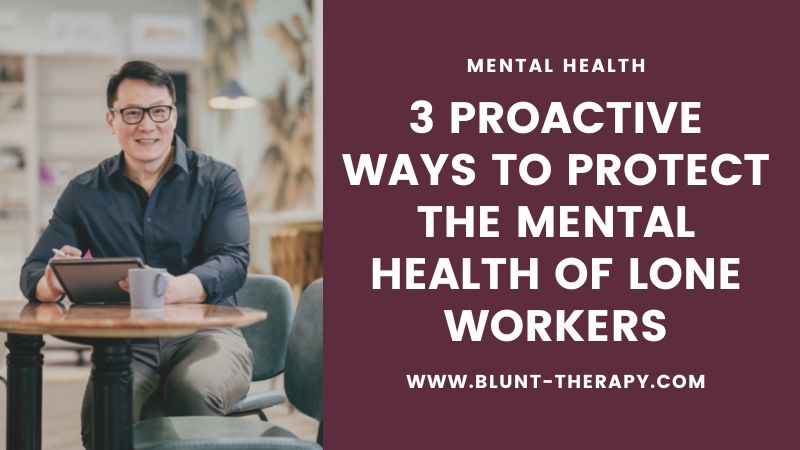Table of Contents
Affiliate link notice: As an affiliate of BetterHelp and other third-party vendors, We will receive compensation if you make a purchase using the links provided on this page. For more information, visit our disclosure page.
Last Updated on November 14, 2023 by Randy Withers, LCMHC
The human psyche is a vast and powerful entity, often untapped in its full potential. The concept of “mind over matter” is not just an old adage but a principle that can be actively applied through tools like positive affirmations to enhance our mental landscape.
If you’re unfamiliar with positive affirmations, you might mistake them for mere self-help jargon. But they are, in fact, potent tools for personal growth and mental fortitude. Let’s delve deeper into what positive affirmations are and the psychology that underpins them.

What Are Positive Affirmations?
Positive affirmations are concise, affirmative statements used to challenge negative or unhelpful thoughts. They are designed to foster a positive mindset and self-empowerment. By regularly practicing these affirmations, individuals can begin to make significant changes in their thought patterns and overall outlook on life.
Think of positive affirmations as seeds of optimism and self-belief that, when sown into the subconscious mind, can bloom into patterns of positive thinking. They are akin to exercises for the brain, strengthening the neural pathways that encourage a positive and resilient mindset.
However, it’s crucial to acknowledge that affirmations are not magical incantations that manifest change without effort. They work in tandem with consistent action and a willingness to transform thought into reality.
Affirmations can be a powerful tool in your personal development arsenal. They are designed to promote positive thinking and self-empowerment, and they can help with a variety of personal challenges and goals:
- Boosting Self-Esteem:
Affirmations can reinforce your self-worth by focusing on your strengths and values, which can help you feel more confident in your abilities.
- Overcoming Negative Thoughts:
By regularly practicing positive statements, you can begin to diminish the power of negative thoughts and reframe your mindset to one that is more optimistic and supportive.
- Achieving Goals:
Affirmations can keep you motivated and focused on your goals by reinforcing your commitment and belief in your ability to achieve them.
- Managing Stress:
Positive affirmations can help reduce stress by shifting your focus away from worries and anxieties and towards a more positive outlook.
- Cultivating Self-Love:
Affirmations can play a crucial role in nurturing self-love. By repeatedly affirming your own worth and embracing your unique qualities, you can build a more loving and forgiving relationship with yourself.
- Enhancing Relationships:
Affirmations can improve your relationships by encouraging a positive view of others and fostering empathy and understanding.
- Fostering Gratitude:
Affirmations can help you focus on what you’re thankful for, which can increase overall happiness and satisfaction with life
How Do They Work?
How do positive affirmations take effect? Psychology tells us that affirmations can reinforce our sense of self and help us to adopt a more optimistic outlook on our lives. But there’s more to it than just feeling good.
Positive affirmations can influence our behavior and habits by reshaping our beliefs about ourselves and our capabilities. They work on the principle of self-affirmation theory, which suggests that maintaining our sense of self-integrity affects our overall performance and well-being.
Here’s a closer look at how positive affirmations can be integrated into our daily routine:
Consistency is Key: Repeating affirmations regularly can reinforce their power, helping to change negative thought patterns into positive ones.
Belief in Change: For affirmations to be effective, you must believe in the possibility of the change they promote.
Emotional Resonance: Affirmations should evoke a positive emotional response, enhancing their impact on our mood and mindset.
Personal Relevance: Tailor your affirmations with your personal goals and challenges to ensure they have the most significant effect.
How To Effectively Use Positive Affirmations
To harness the power of positive affirmations, begin by identifying the areas in your life you wish to improve. Craft specific, positive statements that resonate with your personal aspirations and challenges.
Visualization is a crucial component – vividly imagine embodying the qualities you affirm, engaging your senses and emotions. However, affirmations are not a standalone solution; they must be accompanied by actionable steps towards your goals.
Cultivate a habit of positive self-talk. Replace doubts with affirmations of your capability and worth. Immerse yourself in environments that reinforce your positive affirmations, from the media you consume to the company you keep.
Align your actions with your affirmations. Embody the change you wish to see, and persist through setbacks. Embrace the journey, remaining patient and open to the process of self-improvement.
Personalization Tips
To personalize your affirmations, begin by reflecting on your goals and the negative thoughts that typically hinder your progress. Craft affirmations that directly counteract these negative beliefs. If you tend to think “I’m not good enough to lead,” reframe it as “I am confident and capable in my leadership skills.” Make sure your affirmations resonate with you; they should feel challenging yet achievable. The more your affirmations reflect your personal aspirations, the more impactful they will be.
Creating a Positive Ripple Effect
The benefits of affirmations can extend beyond the individual. When you adopt a positive mindset, it can influence your interactions with others, creating a ripple effect of positivity. By embodying the principles of your affirmations, you can inspire those around you. This can lead to improved relationships and a more positive atmosphere in your home, workplace, and community. Positive affirmations, therefore, have the potential not only to transform the individual but also to contribute to a more optimistic and supportive society.
Final Thoughts
In conclusion, positive affirmations are like the mental gym equipment for our brains. They’re not just feel-good phrases but tools that, when used with intention and action, can sculpt our thought patterns and contribute to a healthier mental state.
Envision your affirmations as powerful echoes in the chambers of your mind, capable of transforming echoes of doubt into anthems of empowerment. By focusing on positive affirmations and coupling them with consistent action, we can not only improve our mental health but also move closer to realizing our life’s ambitions.
Remember, positive affirmations are not a cure-all, but when integrated with hard work and a supportive network, they can be a significant factor in personal transformation. As we continue to explore and harness the power of our thoughts, positive affirmations stand out as a valuable ally in our quest for a fulfilled and joyful life.
Frequently Asked Questions (FAQs)
FAQ 1: Can positive affirmations really change my thought patterns?
Yes, positive affirmations can change thought patterns over time. The brain’s neuroplasticity allows it to reorganize itself by forming new neural connections throughout life. Repeating positive affirmations can help strengthen these new, positive pathways. Consistency is key, as regular practice can help these positive thoughts become automatic responses to everyday situations.
FAQ 2: How often should I practice positive affirmations?
For positive affirmations to be effective, they should be practiced consistently. Many people find that starting and ending their day with a few minutes of affirmations helps set a positive tone for their morning and a restful mindset before sleep. However, the frequency can vary from person to person; the most important aspect is to make them a regular part of your routine.
FAQ 3: What if I don’t believe the affirmations when I say them?
It’s not uncommon to feel skeptical about your affirmations at first, especially if they counter deep-seated negative beliefs. The key is persistence. Over time, with regular practice, your subconscious mind will start to accept these new statements as reality. Also, ensure that your affirmations are realistic and believable to you; they should challenge you but still feel attainable.
FAQ 4: How long does it take for positive affirmations to work?
The time it takes for positive affirmations to work can vary widely among individuals. Some may notice changes in their mindset and feelings almost immediately, while for others, it may take weeks or months to perceive a significant shift. It’s important to maintain a patient and non-judgmental attitude towards the process and yourself.
FAQ 5: Are there any best practices for creating effective affirmations?
Yes, there are several best practices for creating effective affirmations:
- Keep them positive and in the present tense, as if they are already true.
- Make them specific enough to be meaningful to you, but not so specific that they feel unattainable.
- Ensure they are action-oriented, focusing on what you will do or feel, not what you won’t do or feel.
- Repeat them regularly and with conviction, ideally in a quiet space where you can focus and reflect.









